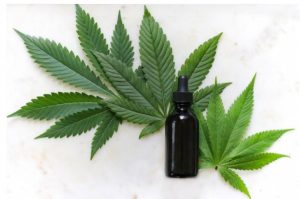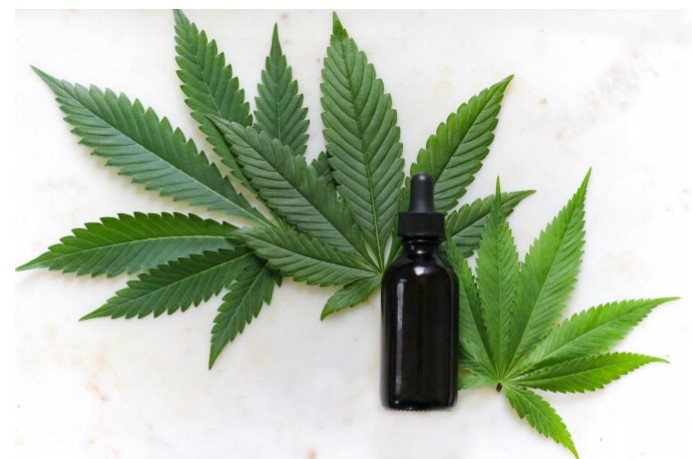Cannabidiol also referred to as CBD, is one of the compounds within the cannabinoid group naturally comprising the cannabis plant. Tetrahydrocannabinol, known as THC, is comparably abundant within the plant but produces psychoactive properties, whereas CBD does not. Each of these compounds can deliver their benefits through the increase in endocannabinoid levels. Endocannabinoids are a chemical compound that the body naturally produces responsible for balancing in areas such as stress, immunity, memory, mood, appetite, sleep, pain, metabolism, and reproduction.
No matter where you go within the United States, you can find CBD-infused products, many by Cheef Botanicals. The application takes place in a variety of ways, from oil gummies to topicals to oil tinctures and more. There are even pet-friendly products to assist with ailments plaguing them. It boasts the potential of relieving pain, helping with symptoms of anxiety, depression, or seizures, and even the possibility of eradicating cancer cells.
Sadly, depending on where you learn about CBD and its potential benefits, you will likely receive varying information. Each bit you pick up will leave you that much more confused as the industry fills with contradiction regularly. Studies are still in the works, so researchers are still learning the different ways in which CBD can affect the body. Each day the information that you had yesterday could change.
Misconceptions Of CBD Oil

With the research currently on record, corrections exist for a few of the myths that are floating around. Each time a new study reaches completion, more misconceptions have the potential for resolution in hopes of eliminating more confusion for users of the product.
1. CBD Oil products are precisely the same.
As a means of breaking it down, CBD oil contains cannabidiol, that is true. But it has a wide range of advantageous plant molecules besides as a complex natural substance likened to tea. Terpenes, THC, and other cannabinoids, with some molecules possessing the potential to be more powerful than the compound itself, also have the potential to have an introduction into the mix.
The oils that derive from differing plant resources will contain diverse molecules unique to that specimen regardless if the mg is equivalent. That will mean that each oil product has the possibility of affecting your body differently. When you figure out how a particular product works for your system, you must learn the specifics about that item, including whether it was hemp or cannabis and stay with those substances that offer added tests for all active molecules. Follow here https://www.healthstatus.com/health_blog/cbd-oil/biggest-misconceptions-about-cbd-oil/ to have more myths debunked.
2. THC properties are purely recreational.
Most people stick with CBD oil containing less than 0.3% THC to avoid the ‘high’ that THC touts as giving. The studies indicate that THC provides therapeutic properties for which many people may not have awareness. Studies report that THC has the potential to aid with Alzheimer’s associated dementia through the inhibition of a particular enzyme that carries the blame for forming amyloid-beta plaque. You can read this comparison post on which THC cartridge to buy.
Marinol or THC of a single molecule has recognition by the federal government for decreasing nausea and increasing appetite classifying it as a pharmaceutical at Schedule III. The drugs with the identification of level three tout little potential for abuse. The cannabis plant as a whole deems as a Schedule I danger offering no medicinal value.
3. The compound is only for those who are ill.
It is not necessary to have a prescription to consume the substance. Still, there is strong advisement to consult with a medical provider before you begin taking any product, particularly if you’re on other medications. There are many potential benefits for serious health conditions, including the hindrance of cancer spreading or the death of cancer cells, IBS or irritable bowel syndrome, heart disease, acne, glaucoma, chronic pain, epilepsy, and seizures. In addition to ailments of this nature, it deems as having the possibility to aid in disorders including depression, anxiety, sleep, stress, or PTSD.
The potential benefits boast as so successful for the human population that the use has translated to pets where cats, dogs, and other animals are increasingly seeing new products on the market to aid in their ailments such as anxiety and joint pain. There are a variety of different oils, foods, and treats.
4. Cannabidiol or CBD is not psychoactive.
The actual meaning behind this is that the compound doesn’t have the same ability as THC to get you ‘high’ or give you an intoxicating sensation. But any molecule that can alter the brain and the perception of the world is technically psychoactive. Whether that’s good, bad, or in between is up for debate. Even caffeine deems as a psychoactive element, as does cannabidiol.
Pointing out the technicality is not something that the community appreciates as the idea is to make people understand overall that the substance causes no addictive behavior and won’t bring intoxication. It deems to be a natural, safe substance that people choose to use as an alternative to chemically-laden pharmaceuticals. And this is technically what’s essential. Here are more common misconceptions you should be aware of.
Before beginning use of the oil, it’s vital to learn as much as possible about the product, particularly if there’s any confusion or questions. The Food and Drug Administration (FDA) has no guidelines concerning the product as yet. Researching the suppliers is critical to find one of reputation with proper growth practices that provide third-party testing, and the optimum in quality and packaging. Following with a medical provider is the recommendation to avoid medication interaction and for optimal well-being.








